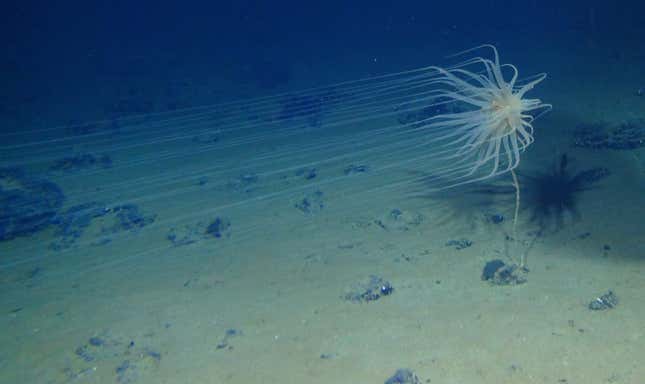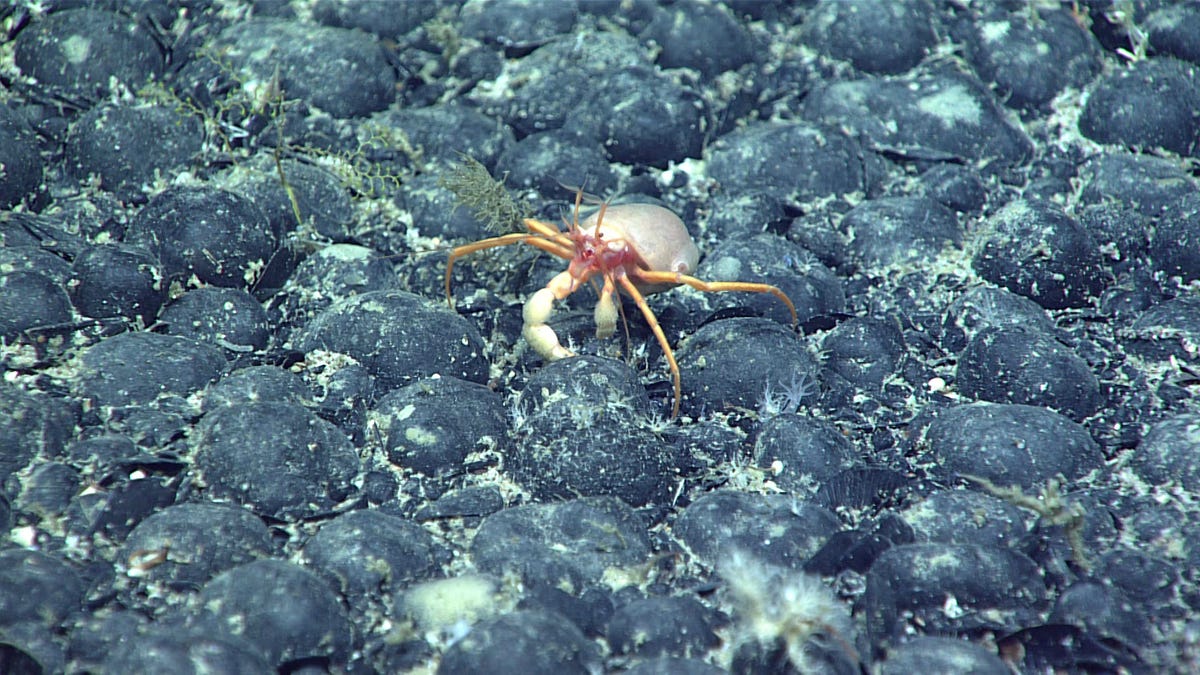The effects of mining for polymetallic nodules and other EV battery metals in the deep sea are becoming clearer now that scientists are devoting studies to this so-called “sustainable mining” practice. And it seems deep-sea mining has twice as much potential to harm ecosystems that we know precious little about than previously believed, as the Guardian reports.
A recent study found that a relatively small mining operation off the coast of Japan decreased the population of marine life in the affected area by 43 percent, and the effect was greater in areas adjacent to the mining, per the Guardian:
The team of scientists analysed data from visits by Japanese mining engineers to the Takuyo-Daigo seamount. A year after the test extraction, researchers observed a 43% drop in fish and shrimp density in the “deposition” areas directly affected by sediment pollution, and a 56% drop in surrounding areas.
“It is easy to assume that once you are outside the zone of deposition there will be no impacts from mining,” said Washburn. “However, if some animals leave the periphery of the deposition area, this would extend the total area of impact.”
The study looked at the seabed ecology following Japan’s first successful extraction of cobalt crusts from deep-sea mountains. This is another one of the methods miners are partaking in, besides trawling for nodules at the bottom of the sea. Both practices yield precious metals and other minerals needed for the production of EV batteries, such as nickel, cobalt, manganese and copper. But both practices are displacing more ocean species than previously thought.
Miners such as the Metals Company claim that the deep-sea mining is much less destructive, and, therefore, preferable to mining for raw materials on land. But scientists like Lisa Levin are refuting these claims. Levin — an ecologist who’s been in over 40 oceanographic expeditions and co-founded the Deep-Ocean Stewardship Initiative — tells Mother Jones that mining in the deep sea is not as relatively unobtrusive and harmless as miners would lead us to believe:
Land mining is very destructive. But the footprint is much, much smaller. I mean the largest coal mine in Germany is less than half the size of the area that would be mined for polymetallic nodules in the Clarion-Clipperton Zone in one year by one contractor.
The nodules are concentrated in a thin layer at the top of the seabed—only 4 inches deep. So you are talking about stripping the sea bottom of many, many thousands of square miles potentially. The same with the seamounts [undersea mountains], which are also targeted. Their ferro-manganese crusts are only a few centimeters thick, so they have to tear up [large areas to mine] this superficial feature.
Levin goes on to explain there’s also a vital role that the ocean plays in the planet’s overall health:
There are also all the reasons having to do with global cycles, nutrient regeneration that allows the productivity for fisheries, all the carbon cycling that keeps the planet healthy. The ocean and the deep ocean take up most of the excess heat and about a third of the excess carbon dioxide. Our climate wouldn’t be livable if we didn’t have a healthy ocean doing all of that, and the life of the ocean is a big part of that cycle.
The scientific community is now warning miners and global governments that we don’t have enough information to assess the harm deep-sea mining could cause. Its effects range from disruption of the planet’s carbon-capturing abilities to the disruption of migration patterns of tuna and other fish that we rely on as food sources. Scientists hope that within the next few years, battery recycling will get to the point that deep-sea mining will be a moot point, becoming largely unnecessary. But until then, miners are still pushing for permits to harvest the ocean floor despite us knowing all too little about what may come of it.


